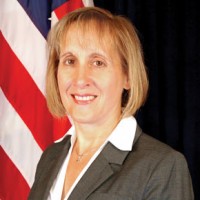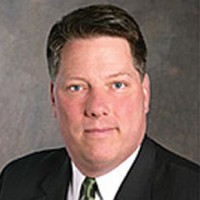
ACAMS Today had an opportunity to sit down and speak with Leigh H. Winchell, Assistant Director, Investigative Programs, Homeland Security Investigations.
Mr. Winchell began his law enforcement career in 1984 as a Deputy Sheriff in Richland County, South Carolina. In 1987, he was hired by the U.S. Customs Service as a criminal investigator and assigned to Key West, Florida. Mr. Winchell was promoted to Special Agent in 1988 and reassigned to Grand Rapids, Michigan.
In 1997, Mr. Winchell was again promoted, to Group Supervisor, and transferred to Nogales, Arizona. He transferred to U.S. Customs Service Headquarters in Washington D.C. in late 1999 and became an Operations Manager with direct oversight of several field offices. Mr. Winchell subsequently became Director, Special Operations Division in 2000 where he held principal responsibility for leading a large group of agents from the U.S. Customs Service, the Drug Enforcement Administration, the Federal Bureau of Investigation, and the Internal Revenue Service.
In 2002 to 2012, Mr. Winchell served as the Special Agent in Charge (SAC) for the Legacy U.S. Customs Service and subsequently the U.S. Immigration and Customs Enforcement (ICE), Homeland Security Investigations (HSI). Mr. Winchell is currently assigned to HSI headquarters serving as the Assistant Director of Investigative Programs.
ACAMS Today: As Assistant Director, Investigative Programs for HSI, what is a typical work day for you and for the staff of HSI's Illicit Finance and Proceeds of Crime Unit?
Leigh H. Winchell: As Assistant Director, Investigative Programs, I oversee all strategic planning, national policy implementation, and development and execution of operations that span the major investigative program divisions within HSI: the Cyber Crimes Center, the Financial, Narcotics, and Special Operations Division (FNSOD), Investigative Services, and Transnational Crime and Public Safety. The Illicit Finance and Proceeds of Crime Unit (IFPCU) and the Trade Transparency Unit (TTU) are within FNSOD. My staff in these two units coordinates HSI's financial investigations, outreach, policy, and continuing training for special agents in the field.
There is no typical day for me or my staff other than the constant of maintaining contacts with the private sector to keep abreast of new and emerging trends in money laundering techniques, financial fraud and scams, and identifying vulnerabilities in the financial, trade, and travel systems, which can be exploited by transnational criminal organizations.
On a day-to-day basis, IFPCU program managers have numerous responsibilities, including dissemination of information to special agents in the field, continual review and analysis of current and ongoing field investigations; conducting liaison and maintaining relationships with the private sector, including the financial community; and developing and maintaining diplomatic relationships. In addition, staff gives educational and training presentations at international conferences that highlight our investigative capabilities and promote HSI to the private sector.
The TTU is an equally important unit within FNSOD. Special Agents and analysts identify suspicious transactions that may indicate international trade-based money laundering. TTU staff coordinates with the private trade and financial sectors and with select foreign partner governments — currently we have seven foreign partners?via the exchange and analysis of international trade data.
AT: How has your career led you to becoming a senior headquarters executive with HSI?
LW: I began my career in local law enforcement in 1984. In 1987, I was hired by the U.S. Customs Service and moved up through the ranks until I became the head of the HSI Seattle office — the Special Agent in Charge (SAC). During much of my career, I focused on money laundering investigations, including a tour as the U.S. Customs director for the Special Operations Division (SOD). While at SOD, I managed a large group of agents from the U.S. Customs Service, DEA, FBI, and IRS that targeted the command structure of international money laundering organizations operating around the globe.
For the past 10 years or so I held the position of SAC Seattle until I became Assistant Director, Investigative Programs in January 2012. Throughout my career I have been blessed with investigating, participating in, or leading a number of successful large scale international money laundering investigations.
I can proudly say that SAC Seattle investigators have achieved major success in large-scale international money laundering investigations.
AT: What anti-money laundering initiatives is HSI currently working on?
LW: HSI has a range of anti-money laundering programs and initiatives. All of these initiatives ferret out vulnerabilities in financial systems and partner with the financial and other private industries to protect U.S. financial, trade, and transportation sectors which terrorists and other transnational criminal organizations exploit for illicit monetary gain. By parceling our investigative focus on the specific aspects or areas that these criminal organizations use, we can accomplish our goal to disrupt and dismantle these groups.
Our most comprehensive initiative is the Cornerstone Outreach Initiative. Cornerstone focuses on enforcement of customs and immigration laws to identify the sources of illicit funds and methods to launder them. These include: kleptocracy (foreign political corruption), narcotics money laundering, telemarketing and online fraud, prepaid devices, movement and smuggling of bulk currency, online gaming and casinos, and designated non-financial and business professionals, such as attorneys and real estate agents.
Operation Money Movers is a Money Services Business/Informal Value Transfer System (MSB-IVTS) identification, enforcement and outreach initiative. Its goal is to educate licensed MSBs to ensure that they operate within the scope of their license and in compliance with Bank Secrecy Act report requirements; to identify unlicensed MSBs; and to utilize all provisions of Title 18 United States Code 1960.
Our SEARCH Initiative partners with the private sector to identify, disrupt, and dismantle organized retail crime groups and the money laundering associated with their criminal proceeds.
Project STAMP is an enforcement initiative that targets Human Smuggling and Human Trafficking Organizations and their illicit proceeds.
Operation Paycheck identifies and eliminates schemes that unscrupulous employers use to pay an undocumented workforce.
Operation Firewall focuses on all three aspects of illicit cash movement: domestic transportation, cross-border smuggling, and global movement of currency through information exchange, and bilateral/multilateral enforcement operations with partner nations.
In addition to these HSI initiatives, we are a contributing member of the Treasury-led U.S. delegation to the Financial Action Task Force (FATF), an inter-governmental body whose purpose is the development and promotion of national and international policies to combat money laundering, the financing of terrorism, and proliferation of weapons of mass destruction. HSI provides subject-matter expertise and advice on topics related to cross-border financial crime, with a special emphasis on the measures by which border enforcement agencies can leverage their authorities to combat financial crime. HSI SMEs were instrumental in the development of Recommendation 32 (formerly Special Recommendation IX) and continue to work with members of the U.S. delegation and foreign delegations to identify new money laundering threats. HSI SMEs serve as members of various FATF working groups and project teams.
AT: How is Banking Secrecy Act (BSA) data used in HSI's investigations?
LW: We use BSA data both proactively and reactively. Proactively, we use it to identify a criminal scheme or illegal activities. Reactively, we use it to identify suspects and other facilitators, victims and potential victims, business or residence locations, assets and other accounts or activities used in criminal activity or laundering of illicit proceeds. We can then use this data to seize these assets or accounts under asset forfeiture authorities. BSA data may also help reveal the modus operandi of a criminal organization or group?how it exploits financial, trade or travel sectors.
AT: Besides filing thoughtful and thorough BSA reporting, how else can financial institutions assist HSI?
LW: Financial institutions are the front line in the fight against illicit finance. Their employees not only know their customers, as required by the Bank Secrecy Act and The PATRIOT Act, but are also well-versed in the financial practices of their specific industry, region or location. Particularly in small towns or niche markets, employees often have in-depth knowledge or understanding of the operating environment, including the endemic people and culture that we may not have. For example, a banker in a small town in Hawaii develops very different, very specific financial knowledge and expertise of their community than a banker in Los Angeles.
Investigations that cross jurisdictions, as is common in federal law enforcement, really benefit when bankers inform law enforcement of unusual financial activity. Numerous HSI cases related to kleptocracy, narcotics money laundering, financial fraud, unlicensed money services businesses and many others have begun with a direct call from a financial institution or private sector employee.
AT: HSI has done tremendous outreach with the private sector. What are some major successes?
LW: In 2011, HSI Special Agents initiated more than 4,270 financial investigations, which resulted in more than 1,770 arrests, more than 1,040 convictions, and seizures valued at approximately $359.1 million, of which $331.3 million was in currency and other monetary instruments. We partner with both the financial industry and general private business sector to identify new trends in money laundering techniques, and find ways for the private sector to identify individuals or groups that are exploiting vulnerabilities in the financial, trade and travel systems. In recognition of our strong and effective partnership with the financial industry, ACAMS presented HSI and JP Morgan Chase with its Private-Public Sector Service Award at the annual March 2012 conference in Hollywood, Florida for our collaborative efforts in identifying suspicious financial transactions related to human smuggling and trafficking. We are proud of our work, and very thankful for the recognition of our efforts.
AT: Can you offer tips or guidance to financial institutions looking to forge partnerships with HSI and other law enforcement or regulatory agencies?
LW: Cornerstone representatives are active in all 26 Special Agent in Charge (SAC) offices around the U.S., and financial institution representatives may contact their local HSI office directly, or contact the IFPCU for the Special Agent or supervisor in their local office. The IFPCU main email address is ICEOIFPCU@ice.dhs.gov. Also, Special Agents conduct outreach events, such as meetings with bank employees and presentations to large groups, which provide a direct link to HSI investigators.
AT: From HSI's perspective, how have money laundering schemes evolved in the last ten years?
LW: Since the atrocities of 9/11, the financial sector has faced substantial regulatory changes and incredible changes in technology, which have drastically altered the way banks conduct business. Not only do traditional banks offer products they did not in past decades, but entirely new industries in the global financial sector have changed how money can be moved. Mobile payments, digital and online currency, and the ease of Internet and mobile phone-based communication has enabled the underbanked, criminals, and legitimate customers to move money much more easily, quickly and anonymously.
AT: What's the single, most important thing a financial institution can do to combat emerging money laundering schemes?
LW: The best advice I can give is to remain vigilant. Criminal organizations are ever adapting to beat efforts by law enforcement and the financial sector to thwart them. It is imperative that financial institutions provide training to personnel and information sharing among branches and units. Together, we must constantly rethink and reevaluate ways that money can be laundered, but world-class financial services institutions must maintain strong and effective compliance systems and a risk-based approach as part of that constant vigilance.










